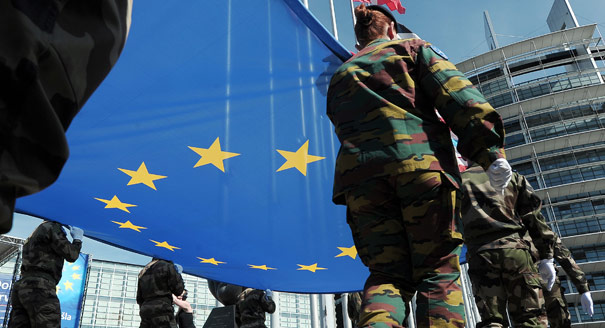Source: German Marshall Fund
Over the past year, European defense collaboration has arguably made more progress than in the past decade. Significantly, unlike past attempts to deepen European defense, there seems to be both genuine political will and a sense of urgency this time around. Although many of the current initiatives date back several years, the election of Donald Trump has raised questions about the continued military reliance on the United States, and Britain’s exit from the EU means less internal opposition to ambitious EU defense proposals. Meanwhile, France’s new president Emanuel Macron has turned out to be a strong proponent of deeper EU defense collaboration. Even NATO seems to welcome a stronger European pillar. Gone are the age-old theological debates about EU versus NATO. Today, it is widely recognized that both organizations play crucial and complementary roles in providing for European security. Recent European defense initiatives, such as Permanent Structured Cooperation (PESCO) and the European Defence Fund (EDF), have the potential to make a distinct contribution to transatlantic security. But success also requires that they are correctly implemented and sufficiently integrated with NATO efforts to avoid duplication. As European capitals contemplate further steps to move forward on European defense collaboration, it is essential that they take into account viewpoints from the other side of the Atlantic.
This policy brief was originally published by the German Marshall Fund.








